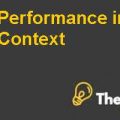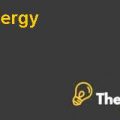Worldview On Ethics Case Study Help
Evolution of Ethics in American Administration:
The evolution in Public Administration has been divided into the following six eras:
The Progressive Era (Late nineteenth – Early twenties):
In the Progressive Era, the ethics in Public Administration comprised of running the government like a business. Performance strategies relating to the improvement of managerial principles and skills were employed by the government, resulting in less political errors and ethical issues. The idea of government being run like a business was based on the grounds that machine and political corruption will be reduced by employing performance strategies. This will ensure that the government practices ethical judgment and will increase the public’s trust and confidence in the government. (Hijal-Moghrabi, 2018)
The New Deal and Post WWII Era (the 1930s -1950s):
After the great depression and World War II, the public administration theory presented by Wilson in the progressive Era did not seem viable as during depression and world war running the government like a business was not possible. A number of intellectual debates relating to the incorporation of ethics in public administration took place. However, one of the key figures in public administration argued that incorporating values and morality will restrict the development of ethical administration. Strategic planning, system-based approaches and new strategies were used in public administration.(Hijal-Moghrabi, 2018)
The Civil Rights Era (1960s - 1970s):
In this era, various changes in the legal and social environment were experienced and New Public Administration (NPA) proposed to incorporate ethics into public Administration and Social equity, morality, stewardship and values were ensured.(Hijal-Moghrabi, 2018)
The Post-Watergate Era (the 1970s-1980s):
The watergate scandal which involved the U.S president’s involvement in the crime related to a burglary in headquarter of Domestic National Committee (DNC) resulted in the loss of the citizen’s trusts in the public administration. In order to restore the public’s trust in government, the Ethics in Government Act was signed which included moral standards, public officials are expected to follow. In addition, the American Society for Public Administration and National School of Public Affairs and Administration and (NASPAA) worked towards promoting the public service as an honorable profession and enhancing student’s knowledge and values to act ethically. (Hijal-Moghrabi, 2018)
The Reinventing Government Era (the 1990s-2000s):
In this Era, the New Public Management (NPM) made efforts to rationalize government, performance, efficiency was incorporated in the public administration along with the practices of promoting transparency and improving the public’s trust in government. Public organizations were perceived as business corporations and officials were required to meet performance targets set by managers. Planning, regulations and procedures were reduced to increase flexibility and transparency and accountability were promoted. (Neves J. B., 2005)
The Current Era:
In this era, public services were provided by network arrangements in which the quasi-public corporation entities were responsible for delivering services and the outcome of the policies. The objective of the network model was to make the government more responsive to the need of the public and restore the public’s trust in government. In addition, the new public service ethos (NPS) which ensured integrity, fairness, honesty is incorporated in public administration and entrepreneurial values such as performance and customer satisfaction are incorporated in private sector organizations. The new public service emphasized on maintain trusts among the stakeholders in order to support the development of social capital and vertical accountability was introduced as a moral value in the new governance. (Hijal-Moghrabi, 2018)
Ethical Challenges and Concern:
Leadership:
In order to be an effective public service leader, one must follow public values, exercise judgment and be responsive to political authority. These qualities are unlikely to be embraced by citizens due to lack of trust in government as a result of their involvement in fraud and bribery scandals and officious acts of public administrators. In order to restore the public’s trust in public administrators and government, ethical leadership development must be made an integral part of governance. Instead of being ethical and exercising moral judgment in making decisions, the public administrator tends to obey the hierarchical directives. Rules and guidelines are not provided to support one’s response to every situation therefore ethical effective leadership must be exercised in order to make ethical decisions and ensure the public’s matter is dealt with fairly. (Garofalo, 2008)
Administrative Discretion:
The public administrators are accountable to make decisions associated with the lives of the public. There is a possibility that public welfare is compromised as a result of exploiting administrative discretion. The public administrator might make decisions based on personal preference and political connections leading to irrational decision making. Exploitation of Administrative discretion also includes involvement in fraudulent activities such as corruption. (Obicci). Moroever, the public officials are provided little opportunity to exercise professional judgement and discretion. (F.Plant, 2018)
Confidentiality:
One of the major ethical issues in public administrations is the secret conduct of the services. The public administrator is required to keep sensitive or key information related to the country’s affairs confidential. However, there is a possibility that the public official might disclose the information in order to make personal gains and use this opportunity to cover up their unethical behavior. (F.Plant, 2018)
Public Accountability:
The public officials are accountable for their actions to their superiors, the general public and the legal authorities of the country. There is a possibility that the answerable officials might not be held accountable for unethical actions due to loopholes in the legal system and governance of the country.
Policy Conflicts:
As the government makes decisions considering the benefits of the larger population, which might be unacceptable or unfair to certain groups. Similarly, the public official’s views might contradict with the policies established by the government. Therefore, there will always be a group which may assume that the government is bias and fair policies are not established. (Obicci)
Conclusion:
Ethics involves studying human behavior using a systematic approach in order to analyze, understand and differentiate matters of wrong and right. Business ethics involves awareness about value conflicts, environmental factors, and ethical demands. Similarly, leadership plays an integral role in supporting ethical conduct in business organizations. The U.S economy comprises two completely different social structures, Democracy, a political system and capitalism, an economic system. The law and ethics are considered to establish rules and a just system in every society as adherence to law ensures only acceptable behavior is practiced and assists the organization and the public to practice ethical values effectively.
The worldview on ethics differs on the basis that some people consider morality as the human being construction while some people consider mortality is responsible for transcending human nature. In order to illustrate ethics, the ethical views of the Christian religion are considered as it served as the ethical framework for a large number of groups. The Christians views on ethics and mortality involve consideration of Metaethics i.e. the motives behind the human actions should be considered.
The ethical behavior from a Christian worldview perspective was argued by various philosophers and Catholic theologian emphasizing that humans throughout the globe are people regardless of their capabilities. Furthermore, it was argued that each person belongs to one community, irrespective of their intellectual or physical abilities. Moreover, according to Peter Singer, utilitarian philosopher and ethicist, humans were not considered as persons on the grounds that the person is a creation who is capable of demonstrating self-reflection, self-consciousness and rational responses. Therefore, according to Peter Singer, people with an intellectual and physical disability were considered as humans and not persons.
In addition, Public administrators need to practice ethical behaviour and follow a strong code of ethics in carrying out their tasks and ensuring fair and just treatment of the public. Ethics in Public administration ensures that the public’s confidence and trust in the government are maintained and will ensure the public administrators do not exploit the public resources and funds. Similarly, incorporation of ethical values in public administration will ensure fair and just policies are established by government, fraud, bribery and other scandals that violate the principle of integrity followed by government and public administrators should be avoided. Moreover, the ethics in Public administration will ensure that the administrators avoid conflict of interest and make fair and just decisions.
In addition, the discussion about the evolution of ethics in public administration in the essay into six main eras, the progressive era, the new deal and post-world war two era, Civil rights era, Post-Watergate era, reinvesting government era and the current era. The essay further discusses the ethical concern and challenges experienced by the public administrators which includes ineffective ethical leadership development as public administrators only follow orders from hierarchical directives instead of exercising ethical judgment, exploitation of administrative discretion, disclosing confidential information, lack of public accountability and policy conflicts...........................
This is just a sample partical work. Please place the order on the website to get your own originally done case solution.












